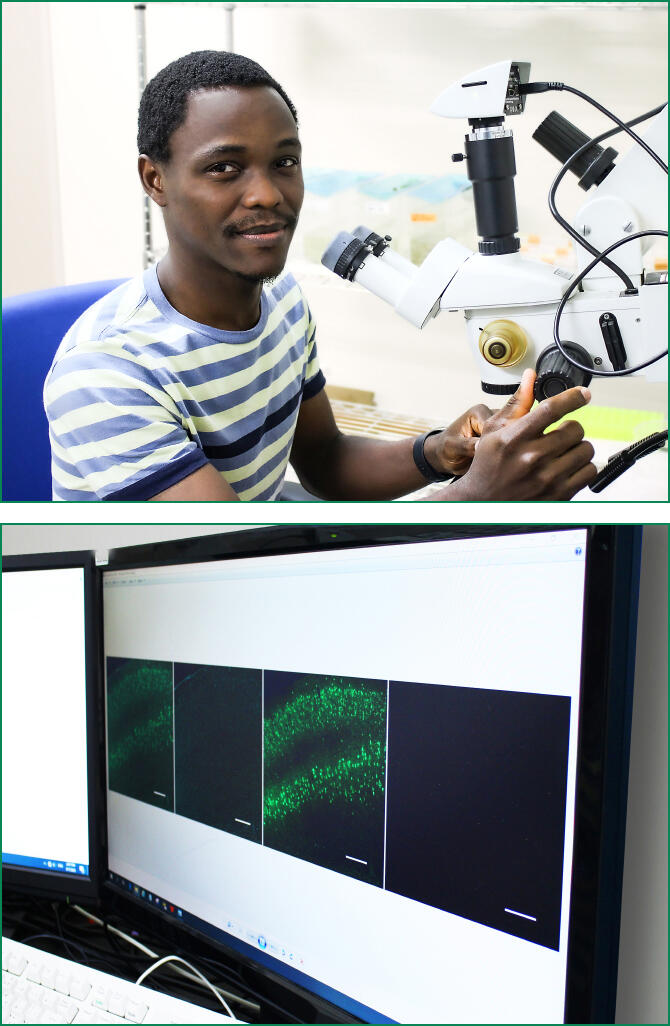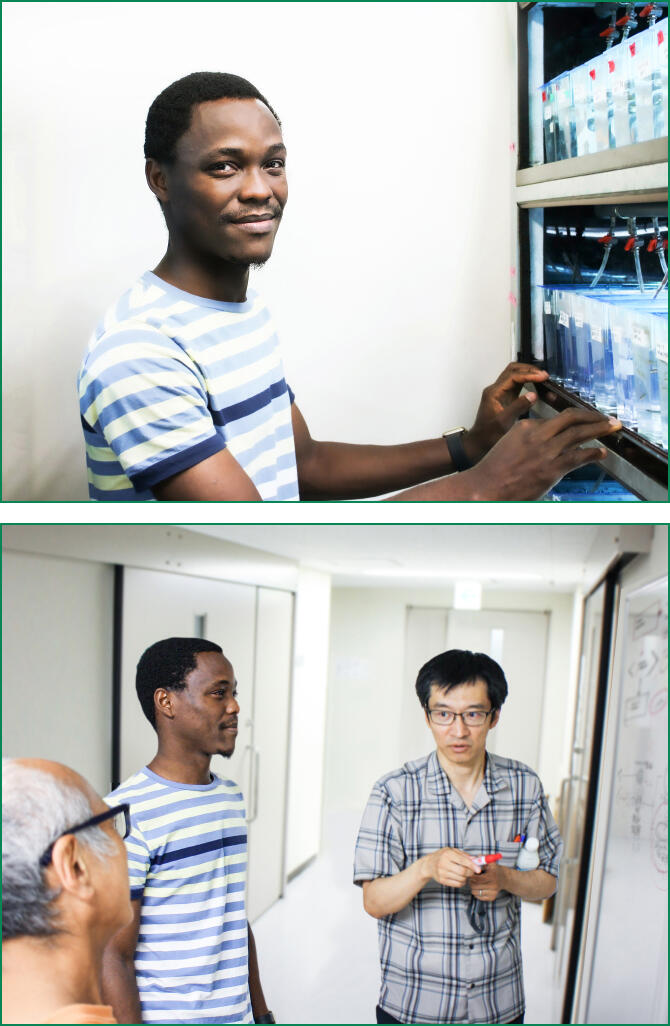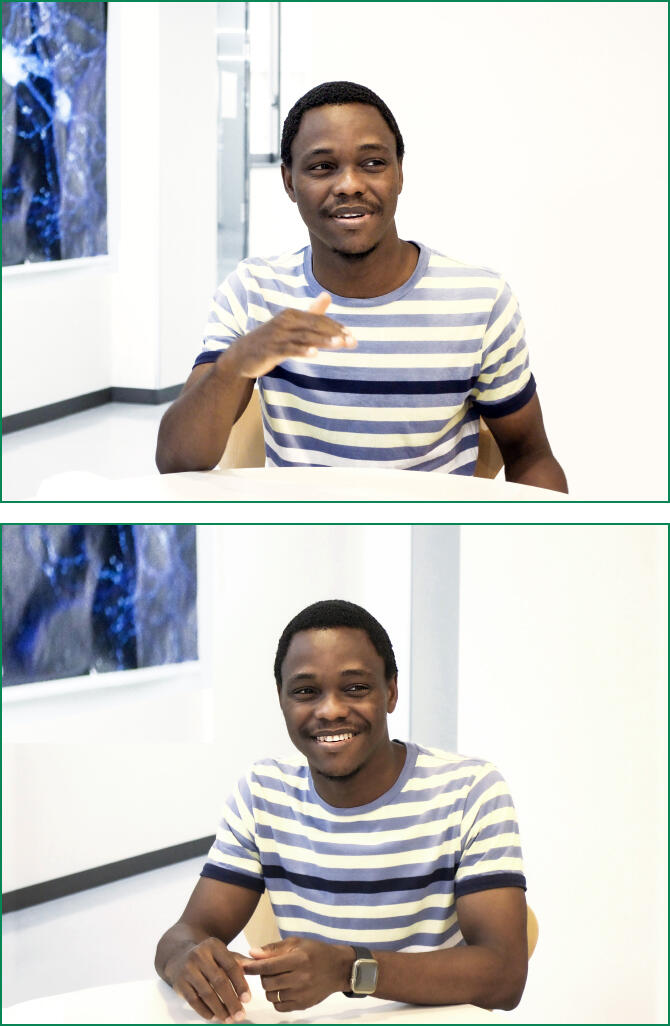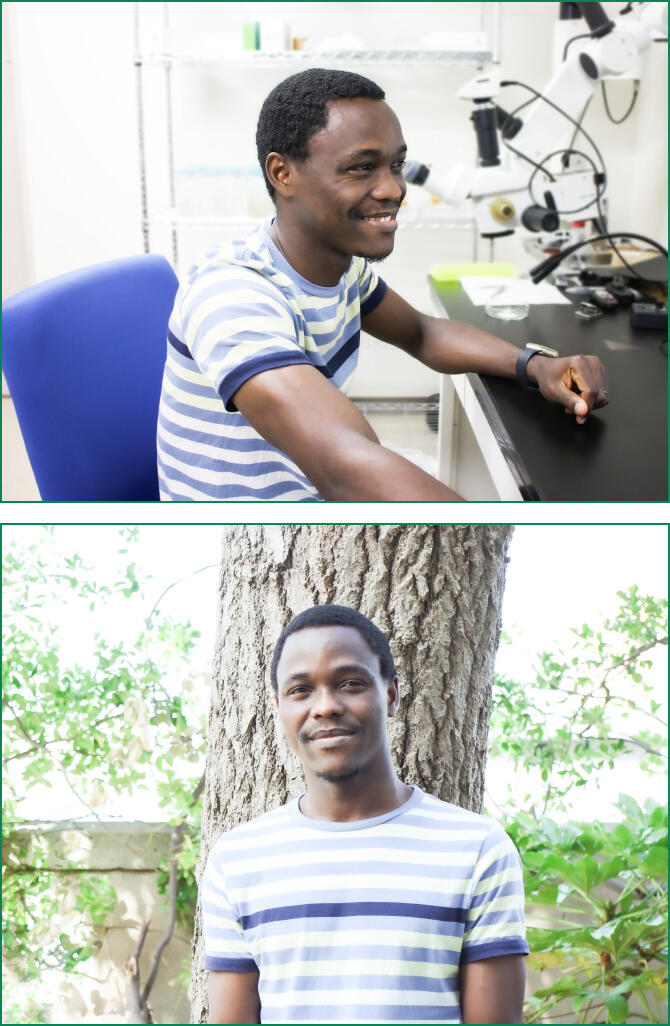
Godfried Dougnon
Assistant Professor, Dept of Neuroscience of Disease -Matsui Lab
Interview

I completed my Ph.D. in Pharmaceutical Sciences at Kyoto University, where I primarily focused on investigating the sedative, anxiolytic, and antidepressant properties of naturally occurring chemical compounds. I joined the Brain Research Institute (BRI) in 2022 because of my interest in brain disorders, and since, I have been a part of some fascinating studies on Alzheimer's disease, as well as neurodevelopmental disorders like autism spectrum disorders (ASD) and attention-deficit/hyperactivity disorder (ADHD), using drug-induced or genetically engineered zebrafish and mouse models.
Tell us about the research you are currently working on.
New pathologies that didn't exist years ago have emerged as a result of the incessant stress we experience nowadays. I am mostly engaged in two research topics at the moment. I am investigating the genetic and behavioral components of neurodevelopmental disorders, specifically ASD and ADHD, which share similar underlying neuropsychological problems. Using a tiny animal, the zebrafish, I am combining genetic and pharmacological techniques to shed new light on the intrinsic and extrinsic mechanisms of these disorders. I also focus on other brain disorders like Alzheimer's disease, using modern neuroimaging methods and mouse models to study the pathogenic mechanisms underlying this condition. I have been able to use my experience in pharmaceutical sciences to have a deeper understanding of neurological illnesses thanks to these varied studies and a cheerful working environment.

My motivation to pursue brain research stems from a deep fascination with the complexities of the brain and its critical role in our overall well-being. I have a strong desire to advance scientific understanding that can eventually result in more effective interventions and treatments for neurological and neuropsychiatric conditions. My areas of interest include, but are not limited to, elucidating new findings on ASD, ADHD, Parkinson's disease, and Alzheimer's disease. BRI offers a special chance to investigate the complexity of the human mind and have a significant influence on people's lives.
What are the strengths of doing research at BRI in your opinion?
BRI is an institution famous for its cutting-edge research in neuroscience. The opportunity to work with top-class researchers, have access to cutting-edge facilities, and be a part of a vibrant research community committed to solving the mysteries of the brain appeals to me the most. Additionally, as I wish to bridge the gap between basic science and clinical applications, I believe BRI's commitment to translational research is a perfect fit for my professional aspirations.

I am eager to advance my understanding of neuropharmacology and molecular neuroscience in the future, especially in relation to brain illnesses. I am looking forward to the challenge of creating cutting-edge therapy strategies that can genuinely improve the lives of people with neurological diseases.
Have you ever experienced any setbacks or failures during your research career, and if so, how did you navigate and overcome them?
I cannot think of a specific instance, but in any career, one should be ready to run into failures and setbacks because they are a natural part of scientific research. One should be resilient, flexible, and regard setbacks as chances for greater development. An excellent technique to achieve results is to reevaluate one's approach and ask for guidance from experts in the field.

In my free time and on holidays, I usually find great pleasure in reading well-written scientific literature that motivates me even more. Cycling and playing soccer are my favorite outdoor activities when I feel weary, but simply, nothing beats a good sleep. I then pick up my research again with newfound vigor.
What are your future goals?
First and foremost, I hope to carry out influential research in the field of neuroscience using my experience
and skills. I am opened to collaborative works with passionate people who wish to elucidate brain-related
disorders. Second, through taking part in educational activities and encouraging a collaborative research
atmosphere, I wish to mentor and motivate the upcoming generation of researchers. Ultimately, I want to
contribute to the field of brain research in a way that will last and have a positive impact on people's
lives.





